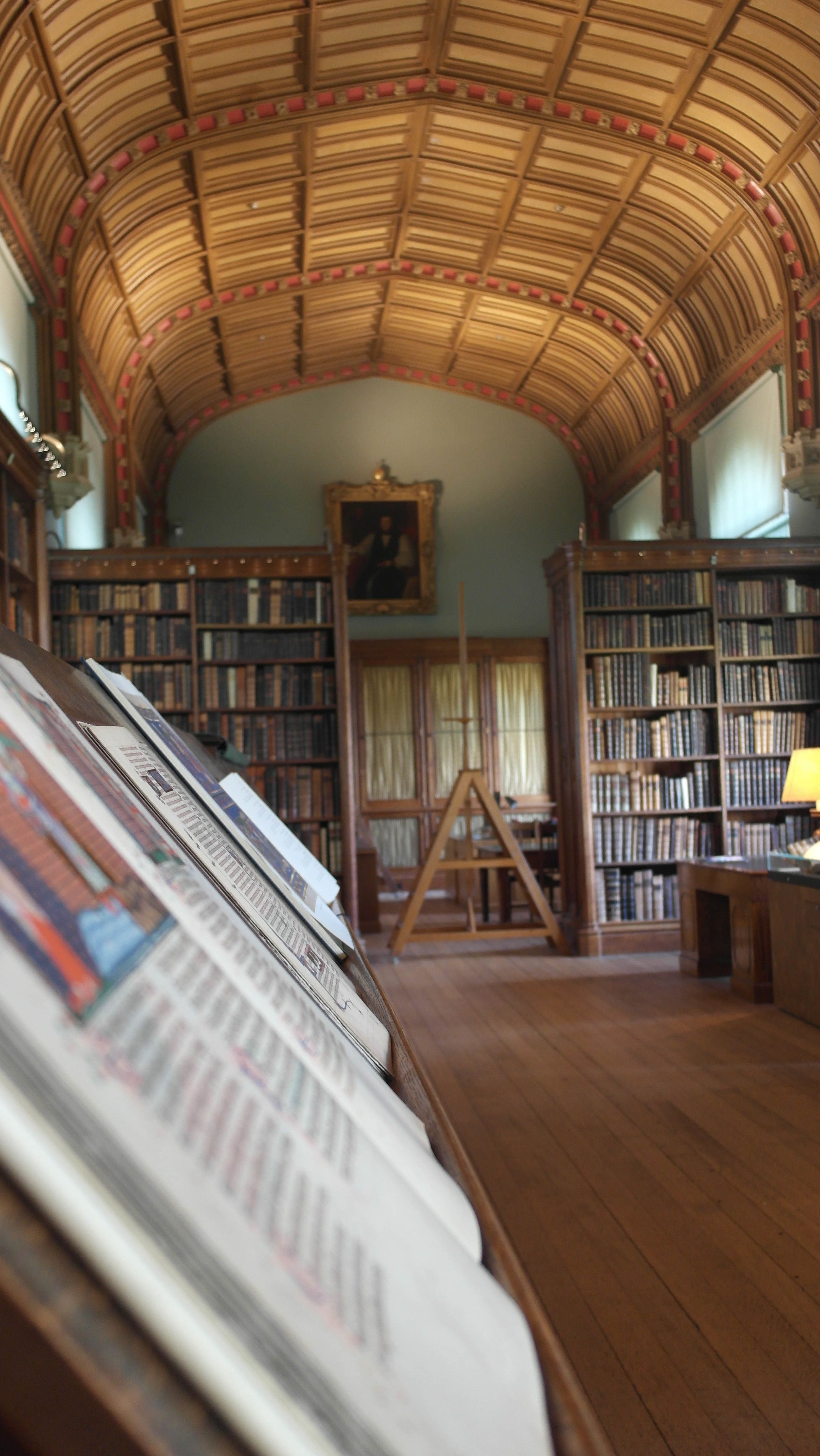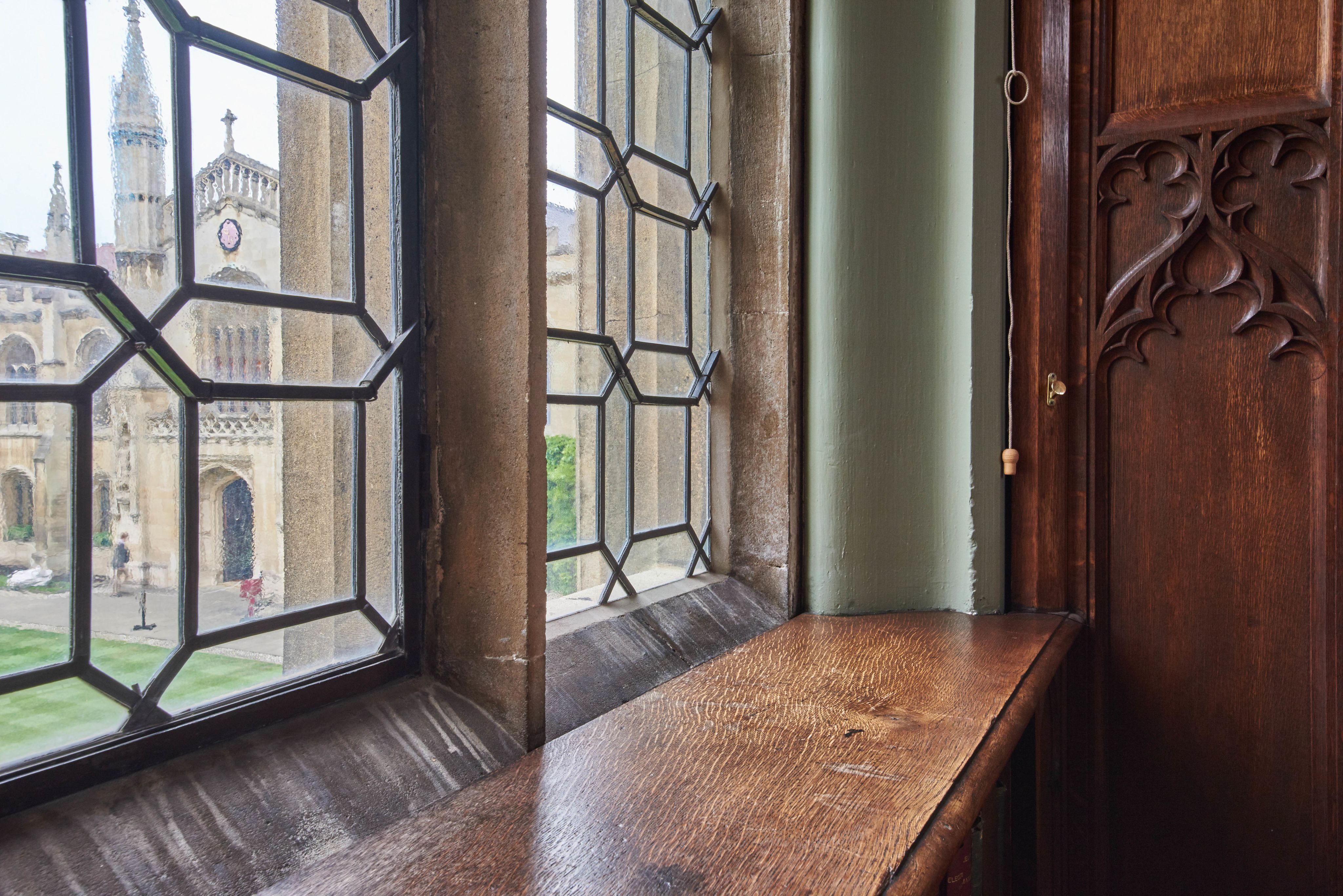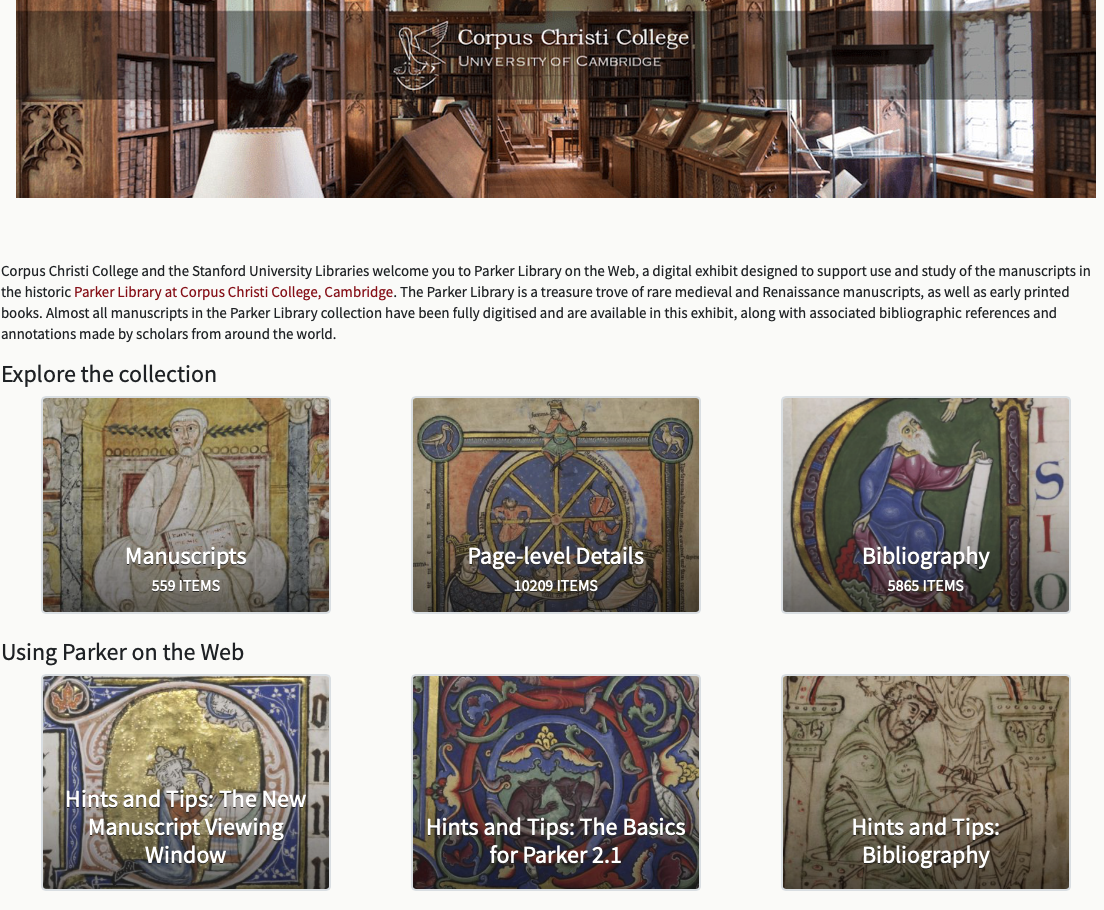Fit for a King: Sixth-century Augustine Gospels to be used in the Coronation of King Charles III
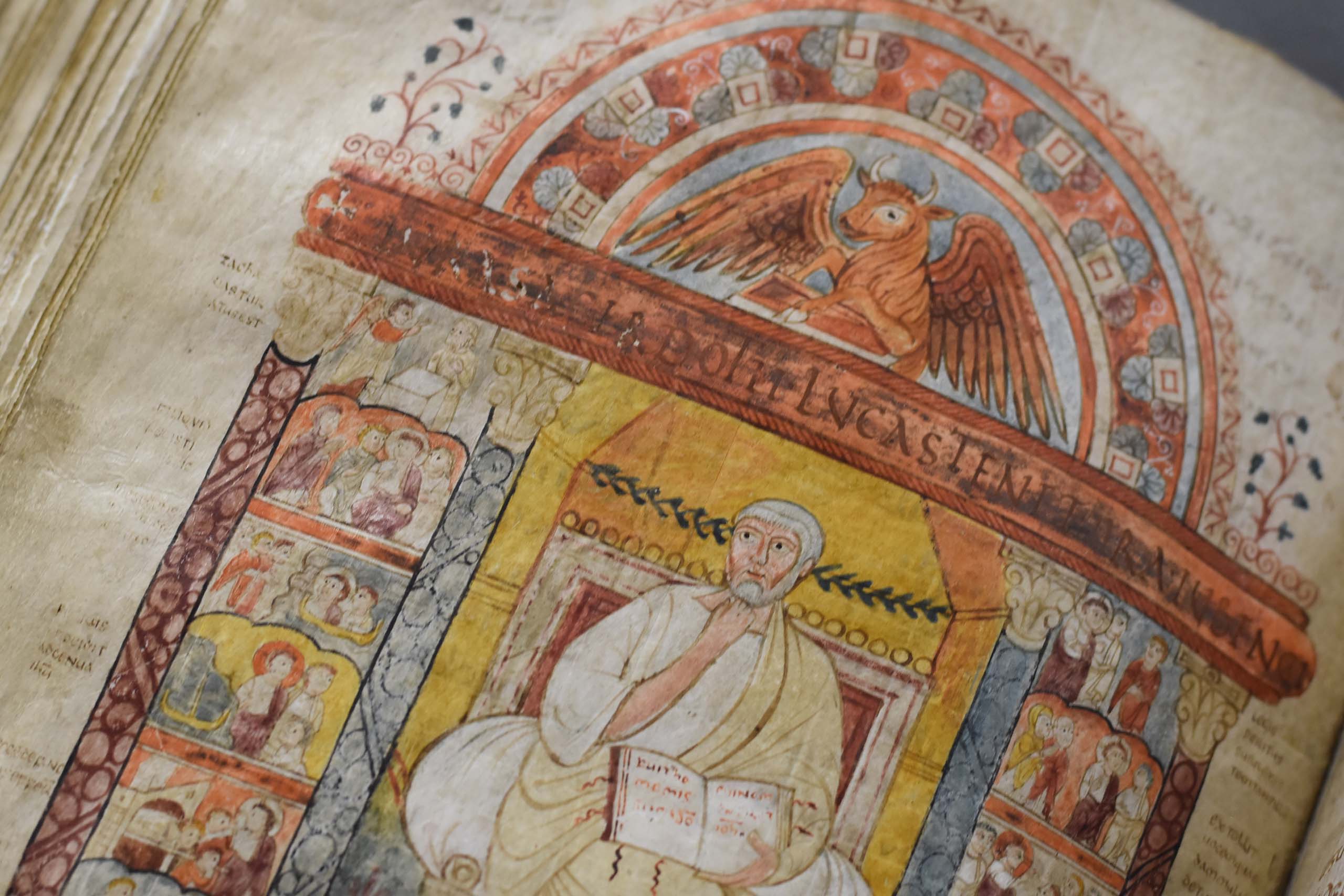
Precious Gospels from the Parker Library at Corpus Christi College, Cambridge requested by King Charles III for the Coronation.
The sixth-century Gospels of Augustine of Canterbury are the oldest surviving illustrated Latin Gospels in the world and the oldest non-archaeological artefact of any kind to have survived in England, continuously owned and in use for 1,400 years. The Gospels were shown to HM the King (then Prince of Wales) when he visited the Parker Library in March 2001. He immediately recognised their importance and has requested that they be carried in his Coronation procession on Saturday 6 May at Westminster Abbey.
The Gospels have been in the care of the Parker Library for the last 450 years. The only times the Governing Body has given special permission for them to leave the College have been for the enthronements of the last seven Archbishops of Canterbury and for two papal visits (John Paul II in 1982 and Benedict XVI in 2010).
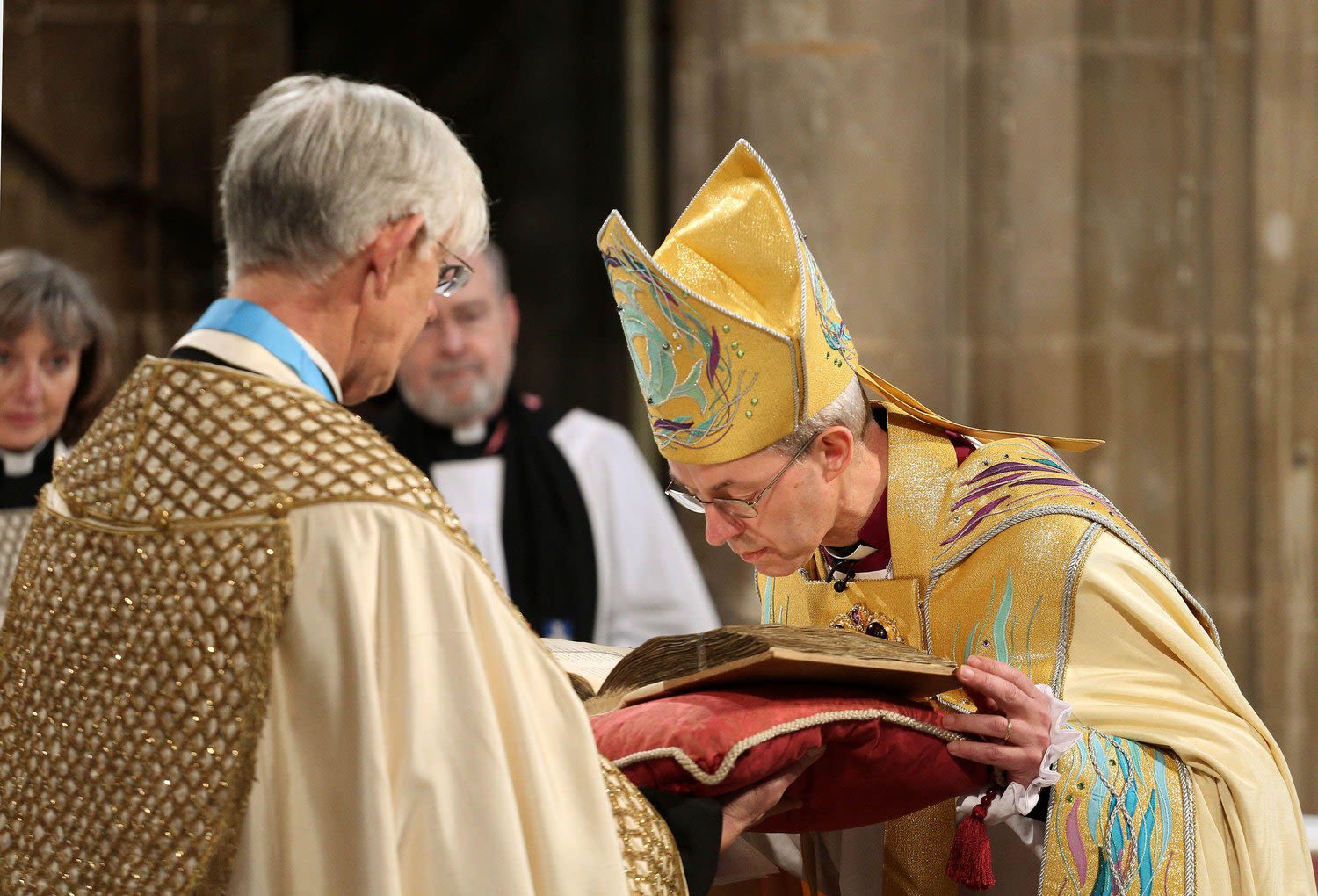
The Most Reverend Justin Welby is presented with the Augustine Gospels in March 2013 during his enthronement as 105th Archbishop of Canterbury.
The Most Reverend Justin Welby is presented with the Augustine Gospels in March 2013 during his enthronement as 105th Archbishop of Canterbury.
The presence of the Augustine Gospels at the King's Coronation affirms their status as the most precious and important medieval manuscript to survive in England. Their fundamental significance to the nation was recognised when the Gospels were inscribed in 2023 on the UNESCO UK Memory of the World Register.
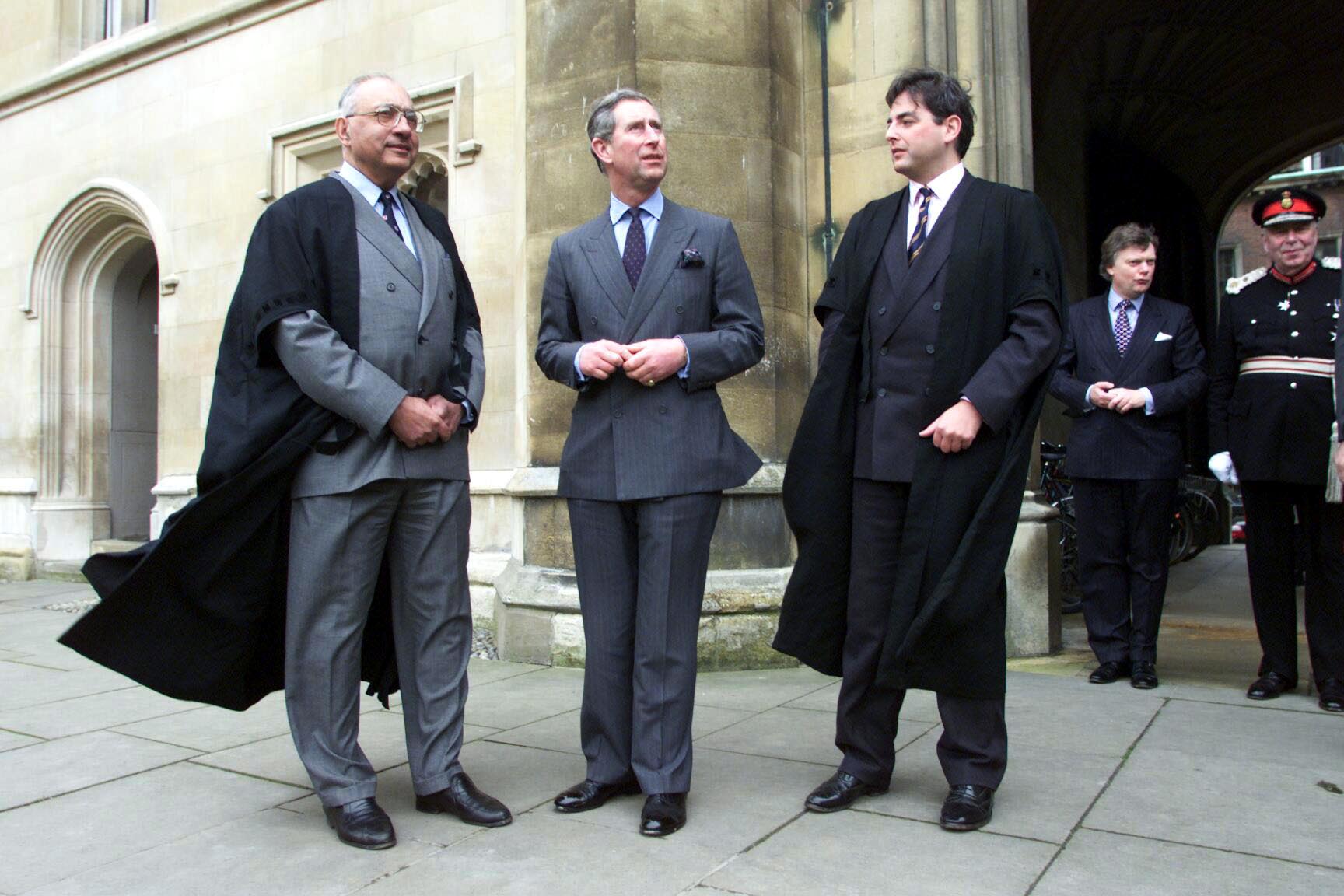
Prince Charles visiting Corpus Christi College in March 2001 with the then-Master Professor Haroon Ahmed (left) and the current Master (then Senior Tutor), Professor Christopher Kelly (right).
Prince Charles visiting Corpus Christi College in March 2001 with the then-Master Professor Haroon Ahmed (left) and the current Master (then Senior Tutor), Professor Christopher Kelly (right).
The Master said, "The Parker Library is at the heart of Corpus Christi College and reflects the centuries of teaching and research that has been our core mission since 1352. I am delighted that the King recognised the outstanding significance of the Augustine Gospels, one of the great treasures of Britain. Corpus Christi College – the only college in Oxford or Cambridge to have been founded by townspeople – is proud to hold in safekeeping for the nation a manuscript that has been in continuous use for teaching, preaching and research for over 1,400 years.”
About the Gospels
Like many medieval manuscripts, the Gospels were written in Latin on vellum (prepared from animal skin) by Italian monks in the late sixth century. In 601, they were sent from Rome by Pope Gregory the Great to help Augustine, who had been dispatched from his monastery five years earlier to convert the pagan English to Christianity.
Augustine landed in Thanet, Kent in 597, subsequently settled in Canterbury and with the permission of King Ethelbert of Kent, began preaching to the local populace. Within a few years Augustine was successful in his mission when Ethelbert became the first English king to convert to Christianity. Augustine himself became the first Archbishop of Canterbury.
Dr Philippa Hoskin, Director of the Parker Library and Donnelley Fellow Librarian said, “This book is a key formative moment in British history. Books were fundamental to the success of Augustine’s mission. Without this volume we would lack a tangible connection to the point in British history where the influence of the Roman Church began through the teaching of the Gospels.”
Unlike more lavishly illuminated Gospels, this volume appears to have been primarily intended as a teaching aide, as evidenced by the size of the book itself (quite portable), the generous height of the text (readable whilst being held) and the presence of the illustrations, of which only two survive. These are the frontispiece for the Gospel of Luke and a further page of twelve framed vignettes depicting scenes from the Passion of Christ.
These illustrations have been studied by Professor George van Kooten, Lady Margaret's Professor of Divinity at the University of Cambridge. He notes that “It’s very easy to follow Christ through the succession of scenes from the Gospels, from his arrival at Jerusalem to the carrying of the cross to the crucifixion.”
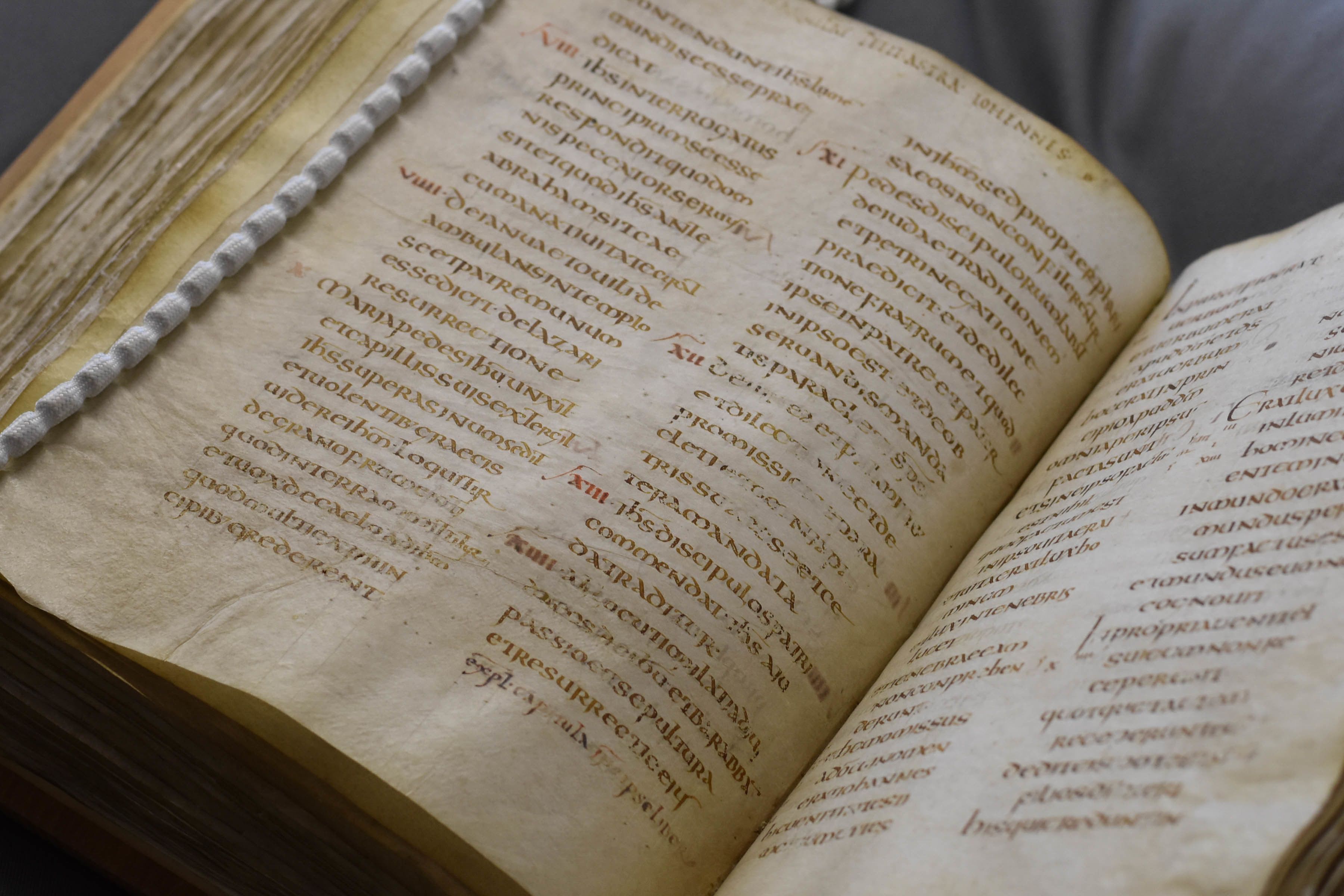
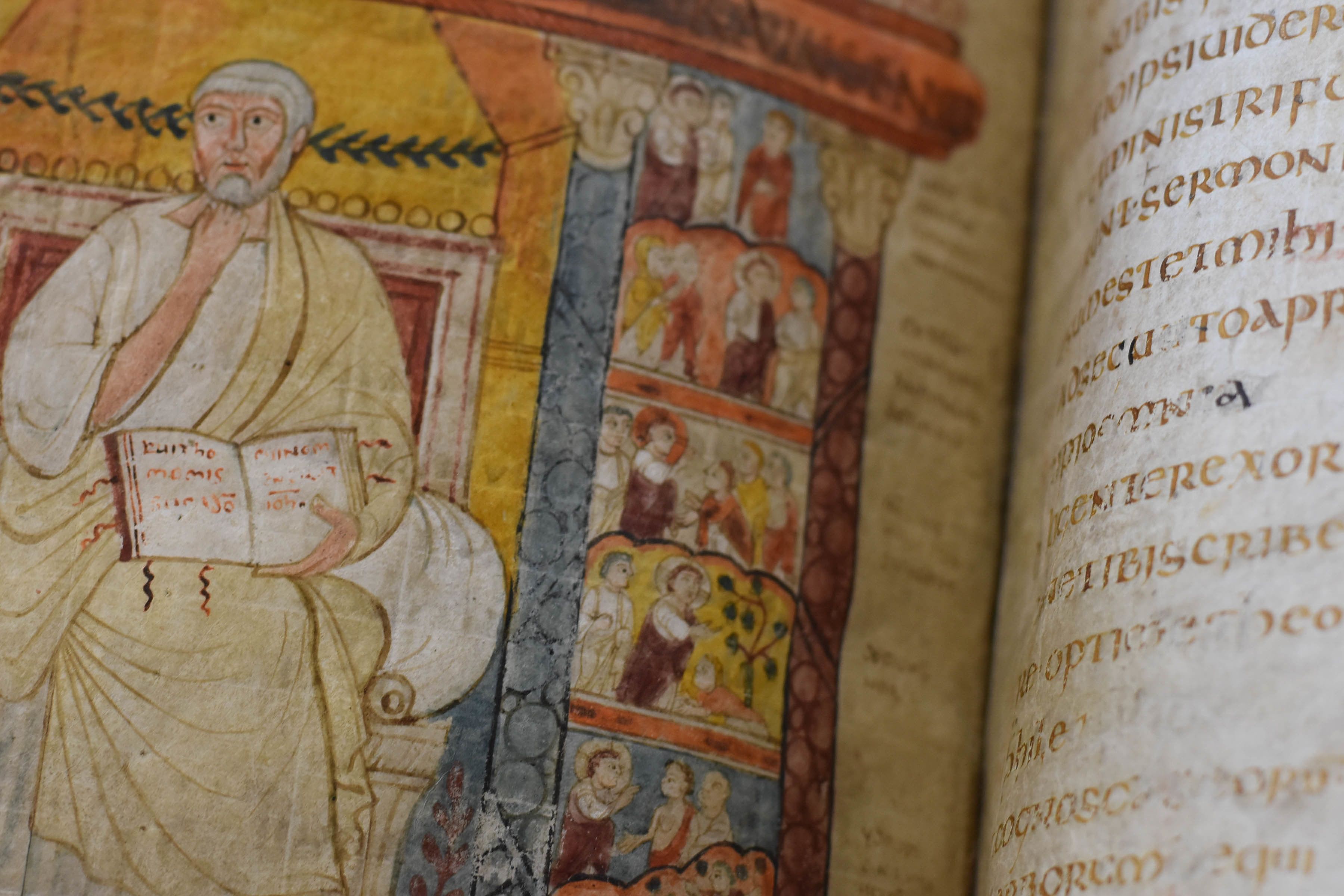
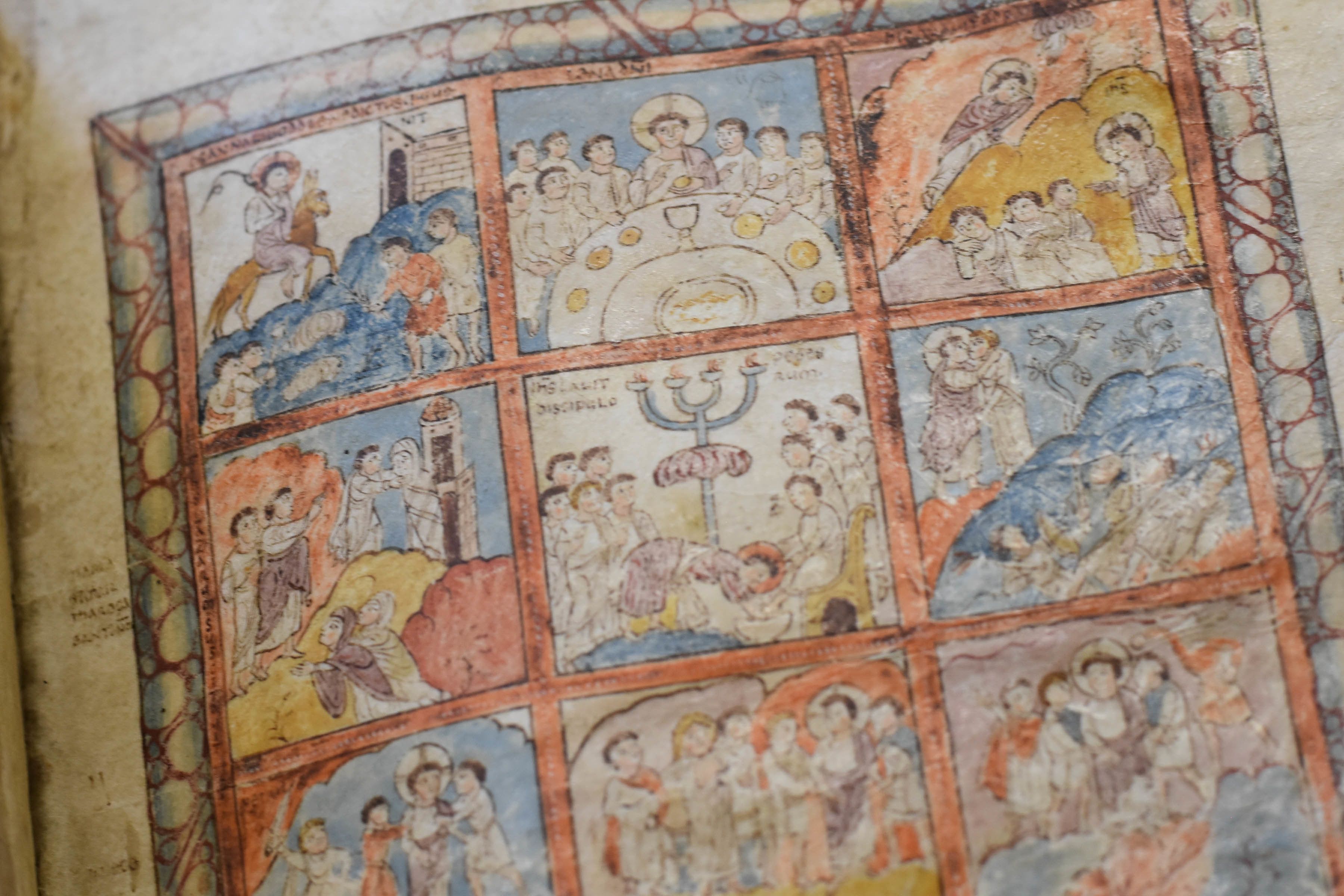
The Gospels at the Coronation
The Augustine Gospels are the focus of the Gospel Procession, which will start at approximately 11.20. They will be carried by the Master, Professor Christopher Kelly, in procession from St Edward's Shrine through the nave and beyond the choir screen. The Master will be wearing full academic dress.
The Gospel – Luke 4:16–21 will then be read by the Bishop of London and Dean of HM Chapels Royal. The text, which will be read in English, begins Et venit Nazareth, "He went to Nazareth".
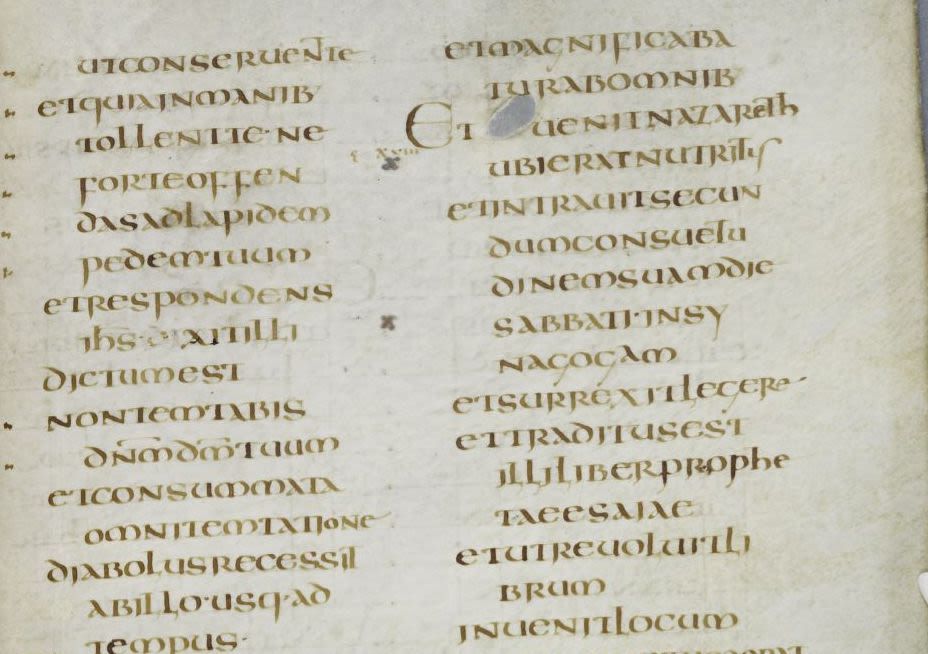
The Augustine Gospels will be processed back to the Shrine to the music of the Ascension Choir (a Gospel Choir). Before returning to the Shrine the Master will present the Gospels to HM the King.
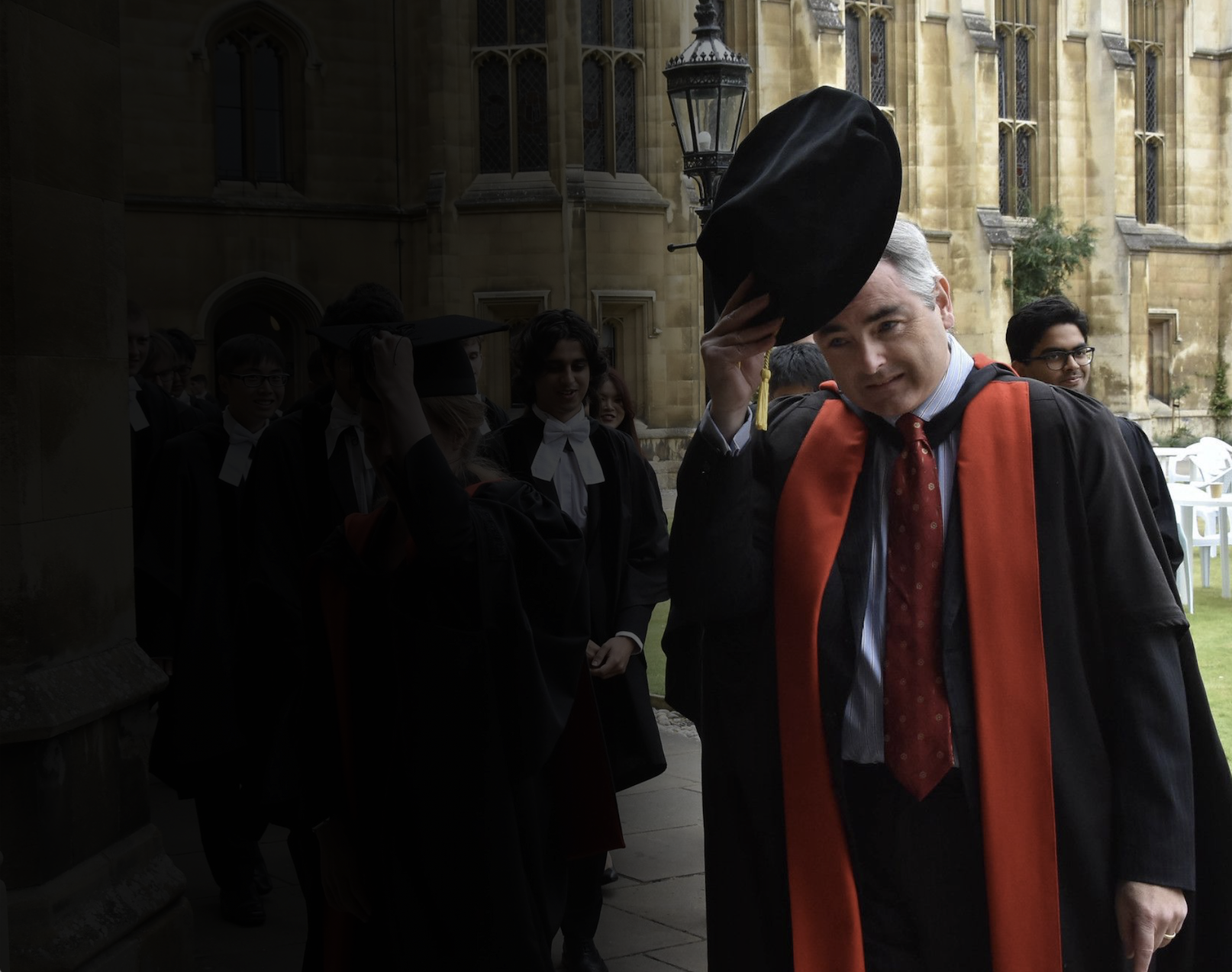
About Corpus Christi College Cambridge
Established in 1352, Corpus Christi College is the sixth oldest College in the University of Cambridge. It does not have a founder. Corpus is the only college in either Oxford or Cambridge to have been founded collectively by townspeople.
Seven centuries later, the College still takes the unique circumstances of its foundation seriously. It helps define its purpose and direction. In the last five years, the College has significantly transformed its undergraduate body by reserving places at admission for those from minorities and underrepresented groups. The College is now a leader in Cambridge in its ambition that its Fellows and students should more closely reflect the diversity and talents of modern British society.
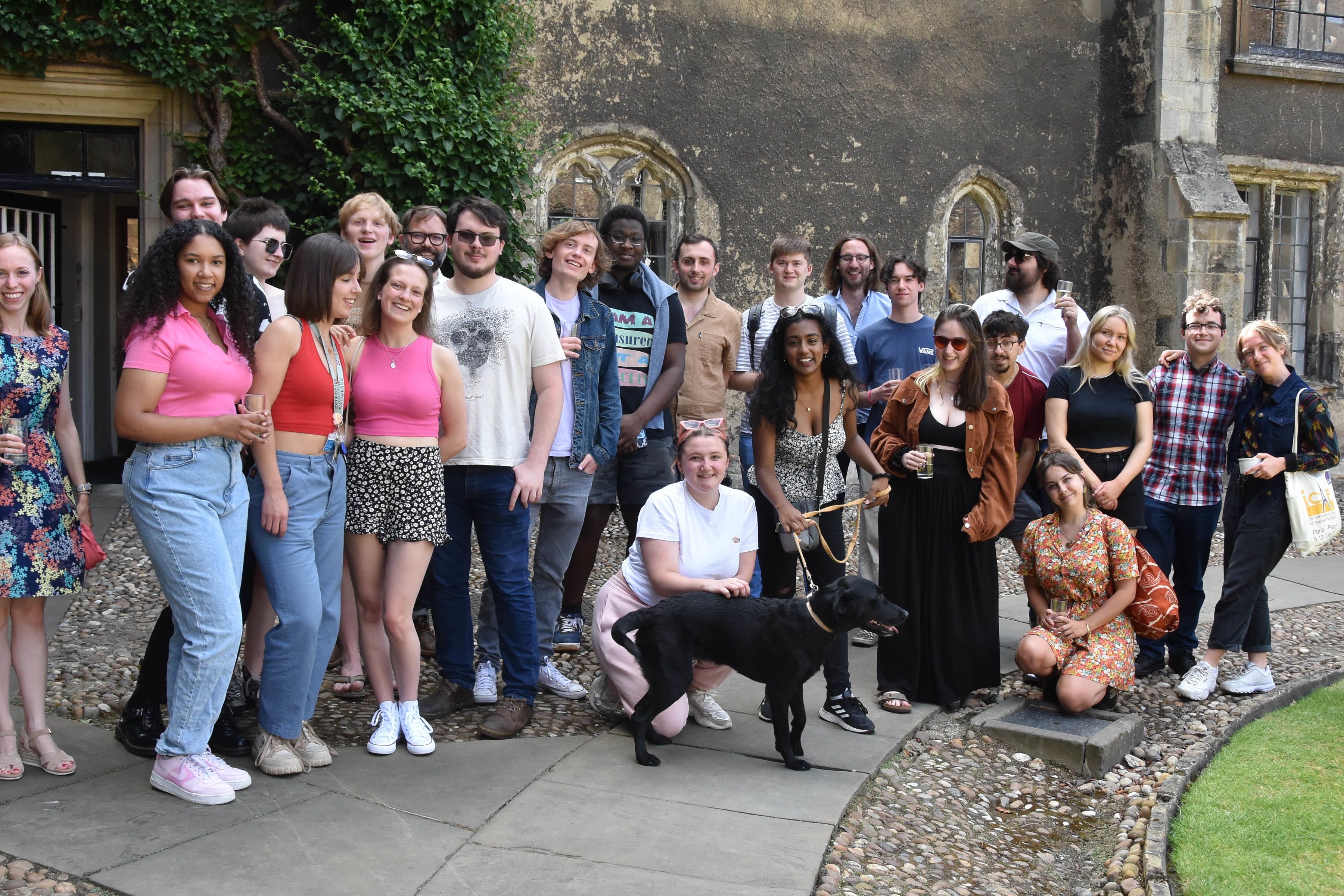
The Gospels and the Parker Library at Corpus Christi College
For a thousand years after Augustine’s mission, the Gospels were kept at St Augustine’s Abbey in Canterbury. In 1538, during the English Reformation, the Abbey was suppressed. Thirty years later, Queen Elizabeth I gave Matthew Parker (then Archbishop of Canterbury) permission to rescue what then survived from the dissolution of England’s great monastic libraries. Parker collected nearly 600 manuscripts and many early printed books. When he died in 1575, he bequeathed his library to his Cambridge college, where he had been both undergraduate and Master.
For the last 450 years, Parker’s collection has been kept safe in the Parker Library. In 2009, the College launched Parker on the Web: one of the first full-library manuscript digitisation projects in the world. In 2017, on-line access to the treasures of the Parker Library (including the Augustine Gospels) was made fully and freely available.
